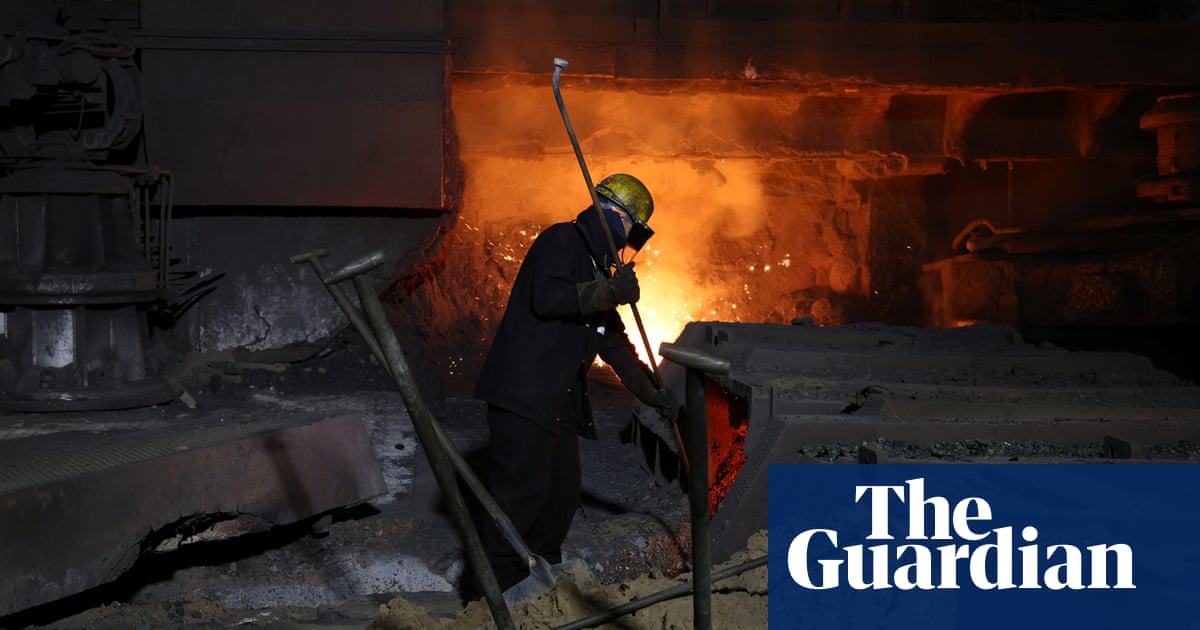British Steel says it will end a consultation on up to 2,700 redundancies without action, after the government took control of the firm earlier this month.
In March, the Chinese company Jingye, which bought British Steel in 2020, proposed to close Scunthorpe’s two blast furnaces. It launched a consultation that it said could affect between 2,000 and 2,700 jobs.
Earlier this month, the UK government used emergency powers to take control of British Steel and continue production at the site.
British Steel confirmed it had officially withdrawn HR1 consultation forms submitted by the company, bringing the redundancy process to an end.
On Tuesday, Lisa Coulson,the interim chief commercial officer at British Steel, said: “This has been a difficult and worrying time for British Steel staff and their families. I can, however, confirm that we are closing the redundancy consultation without action. Since the government passed its legislation on Saturday, we have been working day and night to ensure we are able to stabilise our operations.
“The work done to secure the raw materials we need for both Queen Anne and Queen Bess blast furnaces means we are able to run both continuously.”
The industry minister, Sarah Jones, said: “The action this government took on April 12, and the measures we’ve taken since, matter greatly for this country, and are of huge importance to thousands of steelworkers and their families. We will always stand up for our steel industry.
“Now, thanks to our decisive action to protect steelmaking at Scunthorpe, British Steel has cancelled the redundancy consultations started by its owners Jingye, bringing certainty for thousands of hard-working staff for the long term.”
TheUniteunion said: “Unite are pleased that British Steel have come to their senses and realised that job losses are not the way to ensure Britain remains an industrial power.
“This should be just the first step to begin the process of nationalisation. The government now needs to implement a wholesale overhaul of its energy policy with a commitment to invest in renewables to lower energy prices for heavy industry like steel production.”
Alun Davies, the national secretary for steel at the Community Union, said: “We welcome these positive developments, which follow constructive discussions between steel unions, the Labour government and British Steel management.
“We look forward to continuing these productive relationships going forward. Through this collective effort, backed up by the commitment and resolve of the workforce, Scunthorpe steelmaking was saved from a disastrous cliff edge.
“We will now continue to work tirelessly to ensure the business gets the bright future it needs and deserves.”
